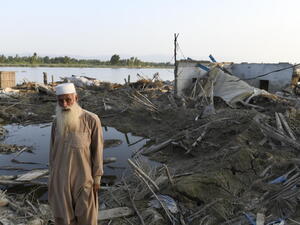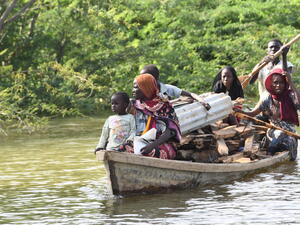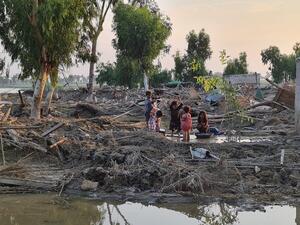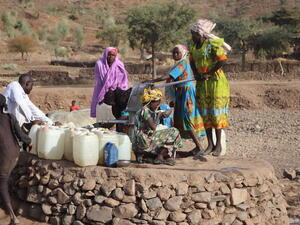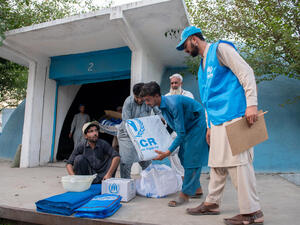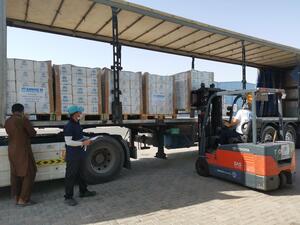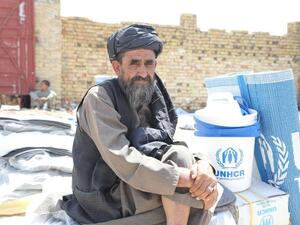Flooding victims displaced for second time
Flooding victims displaced for second time
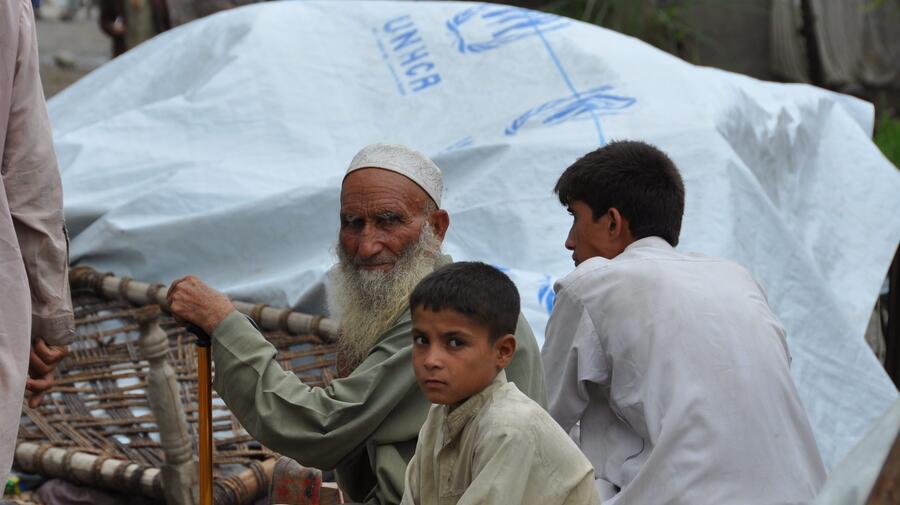
Gul Hassan, an Afghan refugee displaced by recent floods, shelters with his family on a roadside near flood-devastated Hajizai refugee village in north-west Pakistan.
Gul Hassan, 70, is no stranger to adversity. Back in the 1980s, fighting in his native Afghanistan forced him to flee along with his family to neighboring Pakistan, where he started a new life in the refugee settlement of Hajizai, located on a riverbank in the northwestern part of the country.
But over the past week, the most severe flooding in over 70 years inundated his old home and forced him to flee for a second time.For six days, he and his sons have been living in the open on the pavement of a roadway, while his wife and daughters are sleeping with friends.
"It was midnight, when the water levels suddenly began to rise, Hassan told me recently when I visited the area as part of a UNHCR effort to distribute tents to the region. His remaining belongings, those the family had managed to carry with them, lay heaped under plastic sheeting on the pavement. " There have been floods in the past too," he said, but these were the worst in living memory. "This was devastating".
Flood waters are still flowing through the nearby settlement and it is raining again. On a nearby bridge, a crowd of children has gathered to watch as the dark brown waters begin to rise again . UNHCR trucks unload tents, kitchen sets and other supplies at a local school located on higher ground.
Hassan is one of the more than 1.5 million people dispaced by the worst floods Pakistan has seen in a generation. Included in that number are some 700,000 people like Hassan, who have already been dispaced by conflicts-in Afghanistan or in Pakistan itself-and who therefore find themselves homeless for a second time. Hassan's family is among some 10,000 Afghan families living in four refugee villages destroyed by the swirling flood waters. Relief organizations are struggling to reach victims in areas that have been cut off by the flooding as roads and scores of bridges have been washed away.
Down the road between Peshawar and Charsadda, I met Jan Bibi and her family. Like Hassan, she is living on the road because it is higher ground. All around, houses lie half-submerged by flood waters. She told me that when the waters began to rise last week, she was stranded on her roof top for two days. She watched helpless as her cattle and livelihood floated away.
"The water level kept rising," she told me. "I was worried about my (five) kids who were all stranded with me. I thought that we would not survive." Finally, after 48 hours, she was rescued by a passing boat. "I feel lucky because at least, I am alive and together with my family - unlike many others."
Miskeen, 55, is one of Jan Bibi's neighbours. "I only thought of my family and my young children," she told me of her own ordeal. She too was stranded for two days on her rooftop before being rescued by boat and taken to higher ground. "I went to see my house and there is three feet of mud! I have lost everything I had." She gestured to submerged houses visible from the road way where we stood. Over 1400 people have perished in the floods.
UNHCR, working through local authorities, has distributed 10,000 tents so far, along with other relief supplies which have assisted some 50,000 people in Khyber Pakhtunkhwa and Balochistan.
"We are working in close coordination with the government of Pakistan to provide emergency relief to the flood affected people," said Ahmed Warsame, Head of UNHCR Sub-Office Peshawar, adding that an additional 20,000 tents have been ordered.
By Rabia Ali in Peshawar









